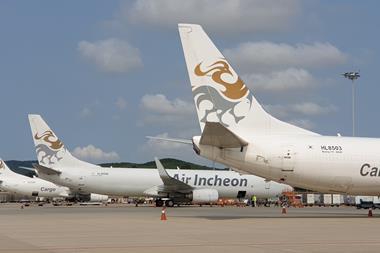Dnata, which holds the sole cargo and ground handling concession at Iraq’s Erbil airport, is confident about the future there despite the current turmoil.
Erbil began attracting a lot of freighter calls as investment poured into the semi-autonomous Kurdistan region in northern Iraq, where most of the country’s oil reserves are located.
“We have only been in there three or fours years and saw a quadrupling of cargo,” says Ross Marino, dnata's senior VP, international airport operations. “Etihad, Emirates, Qatar Airways and Turkish Airlines were all coming in with freighters and passenger services, plus Lufthansa, Royal Jordanian, flydubai and Air Arabia. We’d reached 40,000 tonnes a year from a very low base, and it was still growing.”
Everything changed overnight as ISIS soldiers swept through Kurdistan.
“Nearly all the carriers came out. The previous vibrant O&G traffic is not there now. Most passenger services have now returned, but the cargo market has disappeared,” Marino says.
While more than 90 per cent of the traffic was inbound, it had become quite diverse as retail infrastructure developed. Shopfittings were a significant cargo stream, together with replenishment goods for established retailers such as Carrefour.
As a Middle Eastern-owned operator, Marino believes dnata had a head start against western companies in winning the Erbil contract. “We understand the culture,” he says. “The business won’t come back until the longer-term situation is clearer, but we see good growth prospects there.”










